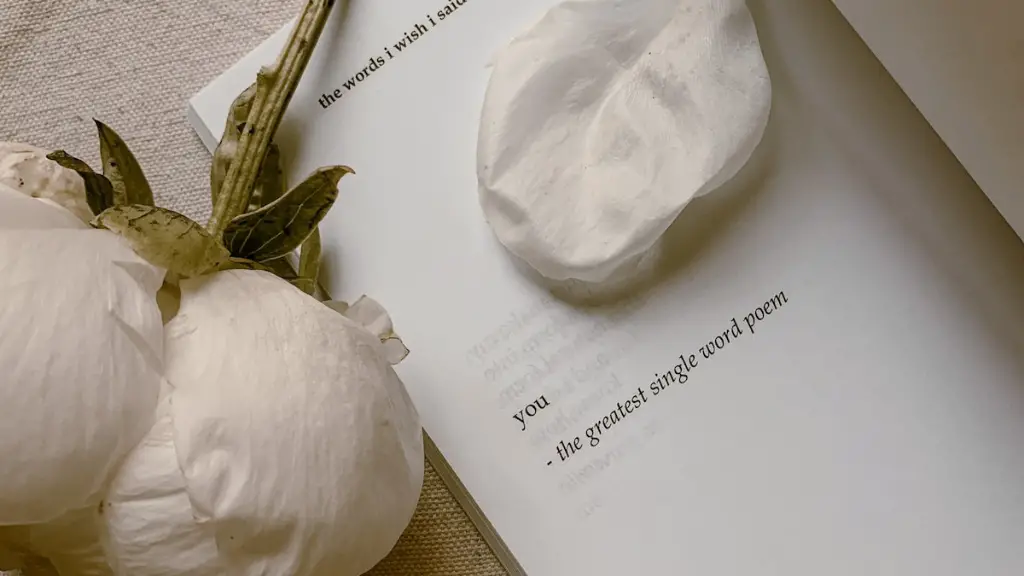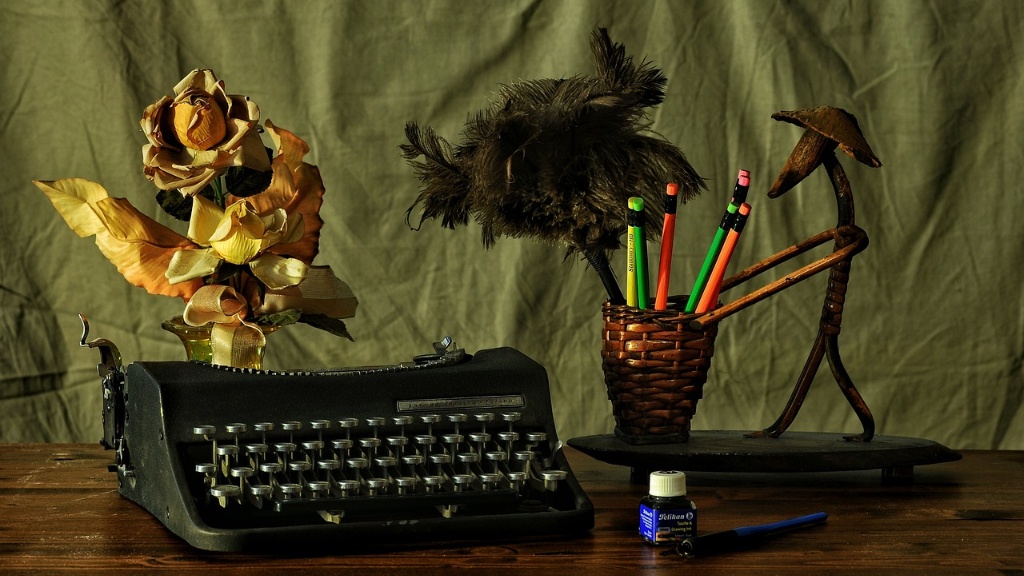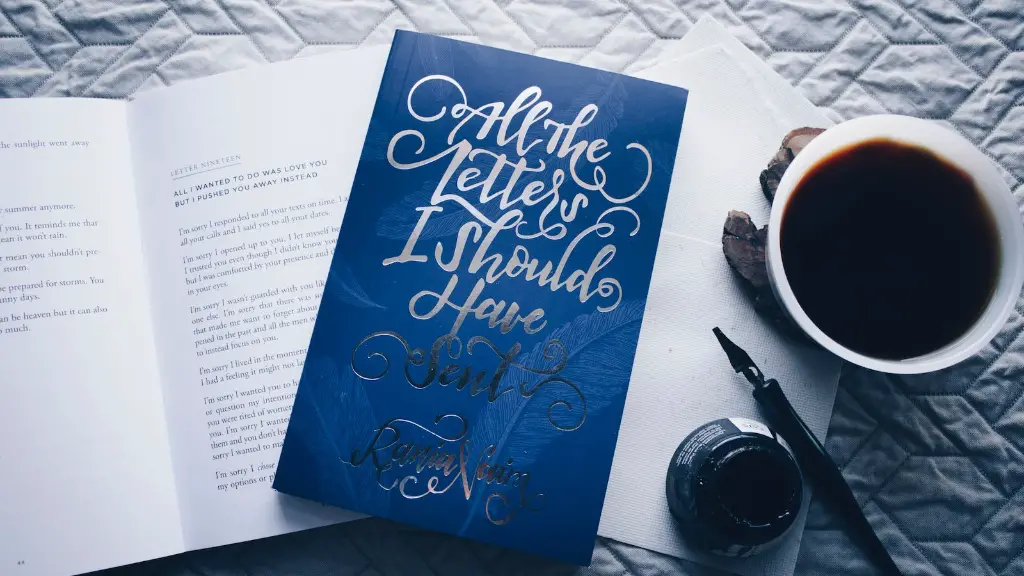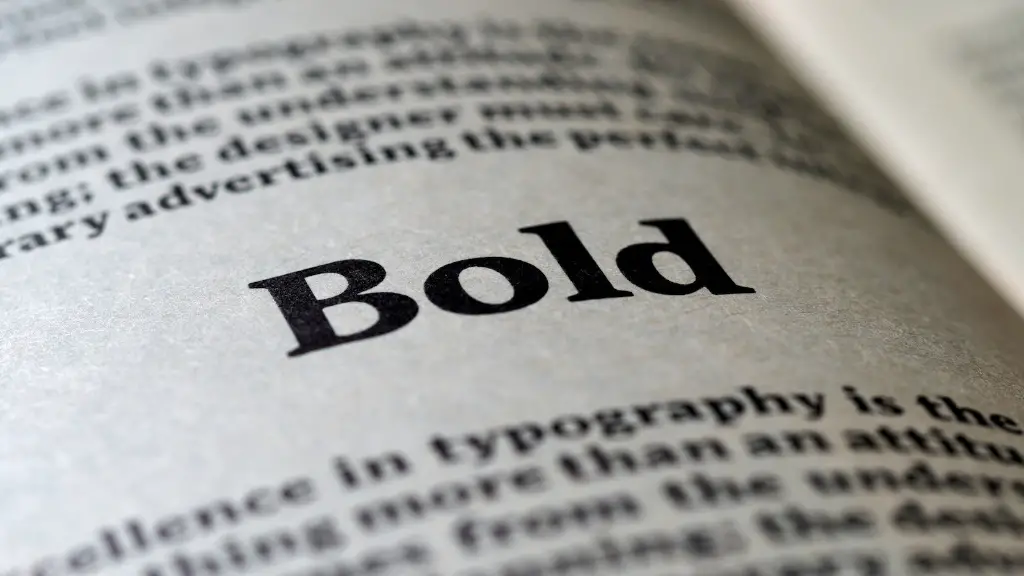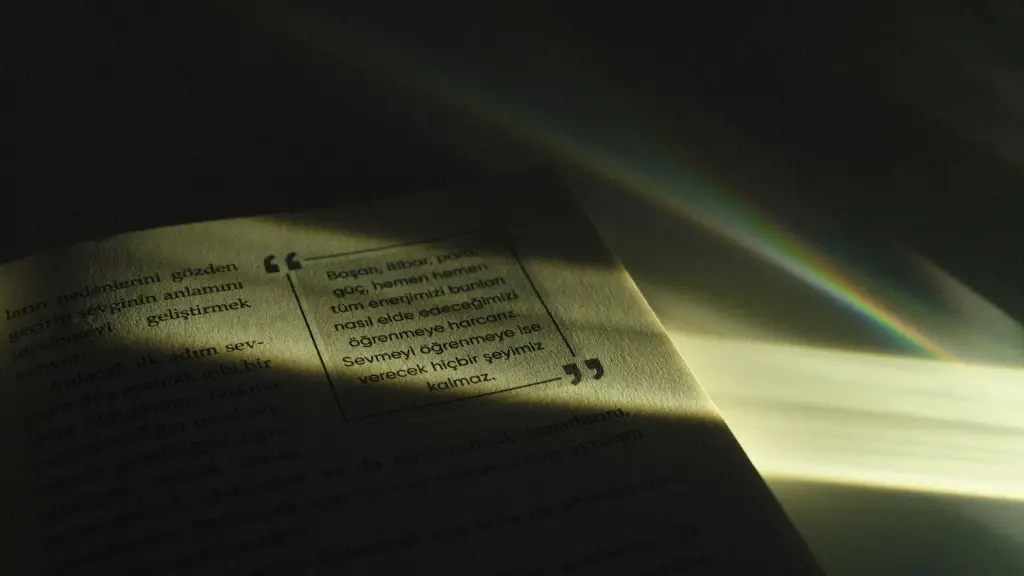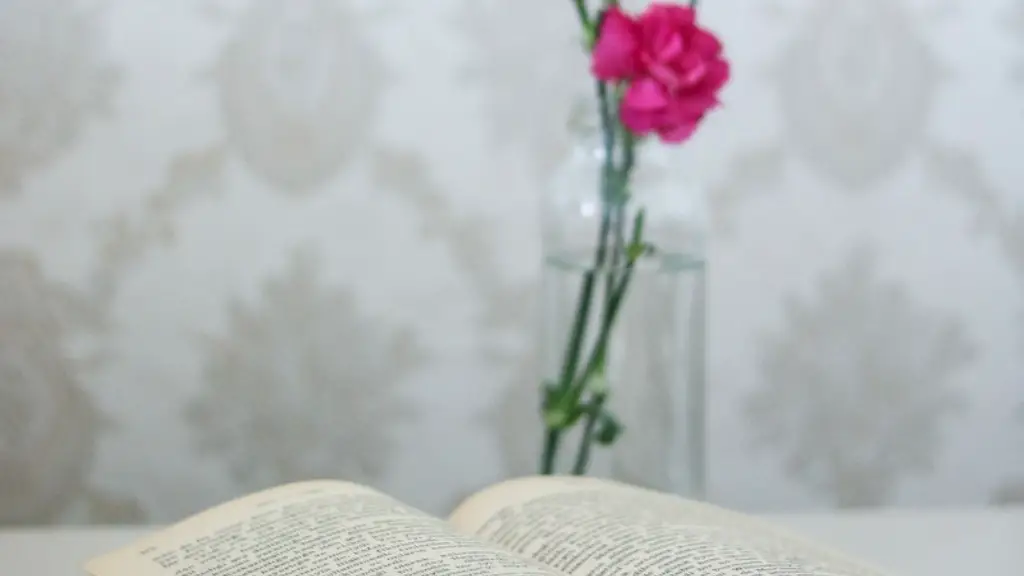Poetry is a powerful and timeless form of expression. It has been used as an outlet for emotion and as a way to convey ideas, emotions and opinions for centuries. Regardless of the subject matter, poetry is one of the most powerful forms of literature and many authors choose to publish their poetry in a book or collection. But just how many poems should be included in a voulme of poetry?
There is no hard and fast rule when it comes to how many poems should be included in a poetry book. Some authors choose to publish only a handful of poems while others may opt to publish a more voluminous collection. Of course, the size and scope of a collection are entirely up to the author and can depend on the type of poetry and the author’s creative vision.
In general, most collections range from 20 to 60 poems. This amount provides ample space to share the author’s thoughts and feelings while also allowing readers to experience the power of multiple poems. However, it is not uncommon for poetry book collections to include more than 60 poems.
When determining the number of poems for a collection, experts recommend that authors focus on quality, not quantity. Buzz Gedney, a veteran poet, shares her advice for aspiring authors, “Choose the best work that you have and don’t fill up the pages with poems just because it fits. Quality is more important than quantity.”
To ensure that the collection is well organized, authors should also consider structuring the poems based on their content, theme or even language. For example, a collection of love poems might be more effectively organized if they are divided into categories such as unrequited love and requited love, while a collection of nature poems could be divided into themes such as nature’s beauty and nature’s danger.
When choosing the number of poems for a collection, there is also the question of cost. Poetry book collections typically range from $25 to $50, depending on the amount of poems included and the cost of printing the book. While smaller collections may be more affordable, larger collections are often more attractive to customers as they offer a greater range of creative works for a single price.
Ultimately, the decision of how many poems to include in a poetry book is up to the author. No matter the size of the collection, each poem should be carefully crafted and well-suited to the poetry book’s theme. Remembering that quality is always more important than quantity, authors should strive to produce their best work and share it with their readers.
Combining Poetry and Prose
Combining poetry with prose is an increasingly popular option for authors. This hybridization of genres allows authors to add depth and variety to their collections. It allows readers to experience multiple creative styles. Poems can provide insight and emotion to stories while stories can provide structure to poems. It also provides authors with more creative freedom and they can explore more ideas while crafting their unique collections.
When creating a hybrid collection, it is important to create a balance between poems and prose. Many authors prefer to keep the number of poems and prose pieces equal while other authors choose to dedicate larger proportions of their collections to their preferred genre.
Historically, poems and stories have been closely intertwined. For example, many fairy tales contain sprinkles of poetry, and many epic poems such as The Odyssey are simply stories told in verse. Combining poetry and prose allows authors to step back in time and explore the same territory as their predecessors.
Whether authors are creating a hybrid poetry collection or a traditional one, the decision of how many poems to include is ultimately up to them. With each piece of work, authors should strive to create a collection filled with diverse and powerful stories, scenes and emotions.
Distribution of Poetry
The method of distributing poetry also affects the number of poems an author includes in their collection. With physical copies, authors will typically be limited to 60-80 poems, depending on the size of the book. Digital copies tend to be more flexible and authors can often include hundreds of poems and stories in a single ebook or online collection.
Physical copies have their benefits, as readers can easily turn the pages, flip through the book and mark their favorite poems. They also provide authors with the opportunity to gain publicity through book signings, readings and other events. Although digital copies are easier to distribute, they tend to be more difficult to market.
No matter the method of distribution, authors should always consider the amount of content they are publishing. A well-crafted collection that offers variety and emotion is far more appealing than a collection filled with hundreds of half-finished pieces.
For authors looking to create a successful collection, marketability should also be a priority. Publicizing your work through book tours, readings, radio interviews and other media can help to boost sales and increase your readership.
Finding Inspiration
Inspiration is essential for poets who are creating a collection. Without it, their collections may never come to fruition. Authors often find inspiration in the work of other poets and authors or by exploring different genres and topics. These activities can help to spark creativity, open new doors of exploration and lead to an abundance of new stories and poems.
The act of writing can also provide a source of inspiration, as authors are often able to discover new ideas and perspectives through their own words. Finally, authors should also consider their own personal experiences as sources of inspiration. Reflecting on life events and personal stories can lead to some of the most powerful and creative pieces.
Ultimately, each author will approach poetry differently. Whether they are creating a small or large collection, the journey to its completion should be fueled by inspiration. And with the right amount of determination, creativity and emotion, authors will be able to craft a collection that resonates with their readers.
Overall Impact of a Collection
When crafting a poetry collection, authors must strive to craft a work that stimulates multiple emotions within their readers. Whether the collection sparks joy, sorrow or anticipation, readers should be left with a feeling of fulfillment upon completing the work. To do so, authors must focus on the overall impact of the collection and make sure that the last poem has the same impact as the first.
Whittling down your collection to the final pieces can be challenging, especially if the poems have been a long-time in the making. To make the final selection easier, authors can use a variety of methods. The most common is to collect all the poems that make the cut and then read them out loud until the collection sounds like a perfect piece of work.
The final pieces should also contribute to the core message behind the work. Many collections feature an overarching theme that readers can relate to. If an author is able to deliver unique perspectives while still remaining true to this core message, they will create a powerful and impactful collection that resonates with many.
Publishing a Collection
Publishing a collection of poems is a great way to reach readers and share your work. While it takes dedication and hard work, authors are able to make their work available to thousands of readers online or through physical books. There are many options for authors when it comes to publishing their work, from self-publishing to traditional publishing. Choosing the right platform is essential for the success of a collection.
When self-publishing, authors have full control and can make their own decisions without any interference. They are also able to keep more of their proceeds as there are no publishing fees or middlemen involved. However, self-publishing can be difficult and time consuming, as authors must take care of the marketing and promotion themselves.
On the other hand, traditional publishing offers more of a helping hand, as publishers take care of the marketing and promotional duties. However, authors must sacrifice some creative control and their royalties may be impacted. Ultimately, the decision of which platform to use depends on the goal of the author and the amount of work they are willing to invest.
Creative Writing Opportunities
Writing is a form of art and must be practiced in order to be perfected. Therefore, authors should continually practice their craft and keep writing, regardless of their publishing goals. Joining writing groups and attending writing workshops can help poets hone their skills and learn from their peers. These types of activities can also foster strong connections, collaborations and relationships between creatives.
Submitting work to competitions and magazines is another way to practice and establish a name for themselves. Winning or having work featured in competitions and magazines can help authors reach new readers, solidify their writing style, and find creative resources.
Finally, authors can look to other forms of media to inspire their work. Watching films, listening to music and reading books can help authors to explore new genres and come up with fresh ideas.
Creating a Poetry Book
Creating a poetry book is a challenge but can be extremely rewarding for authors. It is essential for authors to remember that the quality of the collection is more important than the quantity. The number of poems in a collection depends on the author’s creative vision and the limitations of the medium.
When writing and selecting their collection, authors should strive to create works that evoke emotion and that readers can relate to. Additionally, authors must consider the publishing platform, marketing, and promotion of the collection. Finally, authors can find and hone their skills by attending writing workshops, joining writing groups and submitting their work to competitions and magazines.
